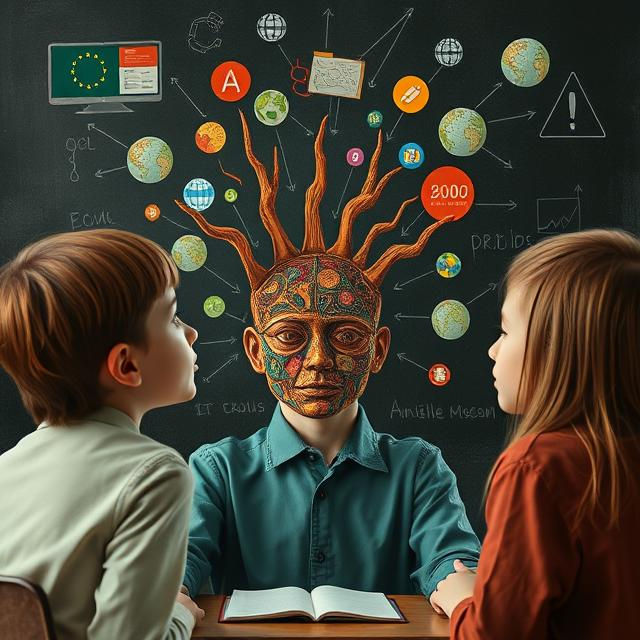The Hidden Narcissism in Our Education System – A Call for Authenticity and Inner Growth
- Aug 13, 2025
- 4 min read
Written by Phoebe Toft, Healing Journey Author & Coach
Phoebe Toft is an impactful author and coach, known for the poetry collection "Caught in Partner Violence", where she uses words to foster understanding and healing around complex issues like partner violence and narcissism.

Our education system, often defined by pressure, standardization, and a focus on outward success, harbors a hidden yet profound influence: a subtle form of narcissism. This invisible force, ingrained within its structures and culture, stifles self-expression, creativity, and individuality. This article explores how this hidden narcissism shapes students' development, fosters a culture of conformity, and undermines authentic growth, calling for a transformation that respects diversity, nurtures the soul, and empowers each individual to flourish.

The subtle narcissism shaping our schools
In our modern education system, characterized by performance pressure, standardization, and a culture that often values outward success, there exists a more insidious and overlooked dynamic: the invisible, hidden narcissism embedded within its structures and culture. This form of narcissism isn’t always overt but can have profound effects on students’ development, self-perception, and creative potential.
The role of hidden narcissism in schools
Narcissism, traditionally understood as an excessive focus on oneself and a need for admiration, can manifest subtly within educational environments. In schools, this often appears as a culture that prioritizes control, competition, and superficial achievements over genuine self-expression and inner growth. The system tends to value conformity and outward success, sometimes at the expense of individual uniqueness and authenticity.
This environment can cause students, especially those who don’t fit the mold, to feel overlooked, judged, or marginalized. It’s a culture that, at its core, seeks to preserve a certain image and order, often stifling the authentic voices and inner worlds of learners.
How does this hidden narcissism manifest?
Control and standardization: Emphasis on uniformity and measurable results can suppress diverse ways of thinking, feeling, and expressing oneself.
Competition over collaboration: A focus on grades and rankings creates a competitive atmosphere, linking self-worth to external validation.
Suppression of questions and Creativity: When students challenge the system or express different perspectives, they may face ridicule or dismissal, silencing their inner voices and creative impulses.
Ignoring individuality: Students who differ from normative expectations may internalize negative messages, leading to low self-esteem and feelings of being “wrong.”
Deep consequences for the soul
This form of unseen narcissism can create internal conflicts where students internalize the system’s negative messages that their differences are failures or unworthy. Over time, this can foster feelings of emptiness, inauthenticity, and a diminished sense of inner vitality. Many young people learn to suppress their questions, intuition, and creativity to conform, which can have lasting effects on self-image and critical thinking.
A culture of suppression and its hidden cost
As Carl Jung emphasized, wholeness and self-development depend on integrating both conscious and unconscious aspects of the self. When the educational system neglects this holistic process, it fosters a culture that undervalues the soul’s needs, leading to collective and individual spiritual wounds. This suppression acts as a form of invisible psychological harm, stifling dreams, talents, and passions, ultimately damaging self-esteem and joy in life.
Reflection and action
It’s high time we recognize that our education system is often permeated by a concealed narcissistic culture that undermines authentic growth. We must strive to develop a more inclusive, understanding, and flexible system, one that respects differences and allows each soul to flourish freely.
How can we transform this culture?
Individually: Start listening to your inner voice, ask questions fearlessly, and nurture your creative and intuitive talents.
Societally: Advocate for a more inclusive education system that honors diversity, authenticity, and the unique potential of every individual.
Spiritually: View the suppression of the soul’s aspects in schools as a collective opportunity to reconnect with our deepest core and live in harmony with our true nature.
In short
This article highlights a vital realization: true growth extends beyond acquiring academic skills—it involves recognizing and releasing the soul’s needs. It’s a call to teachers, parents, students, and philosophers alike to rediscover inner voices and foster systems where authenticity, creativity, and the soul’s freedom are central.
A philosophical and spiritual perspective
Thinkers like Søren Kierkegaard and Carl Jung have emphasized that genuine human development involves integrating the unconscious and authentic aspects of the self. Spiritual traditions from Buddhism to Christianity, Hinduism, and indigenous pathways stress the importance of connecting with this inner core to find peace, joy, and meaning.
When schools suppress questions, emotions, and creative impulses, they hinder this vital inner connection, limiting true growth and understanding.
Let’s reclaim the voice of the soul
It’s time to reconnect with our inner guides. Creating spaces for the soul’s voice, embracing our unique paths, and cultivating a society where authenticity is the norm can help heal individual and collective wounds. Only by acknowledging and freeing ourselves from the hidden narcissism in education can we truly support young people to become authentic, creative, and whole beings.
Let’s look inward, listen deeply, and build an educational system where the freedom of the soul is at the heart.
Read more from Phoebe Toft
Phoebe Toft, Healing Journey Author & Coach
Phoebe Toft is a courageous author and coach who draws on her experiences from a violent relationship with a narcissistic partner. In her poetry collection 'Caught in Partner Violence', she uses words as healing tools to explore the dynamics of narcissistic relationships and raise awareness about trauma. With a spiritual approach to coaching, she aims to guide others toward inner strength and freedom. Phoebe is passionate about increasing understanding among society and professionals regarding the experiences of victims, as she believes that knowledge is crucial for healing.









